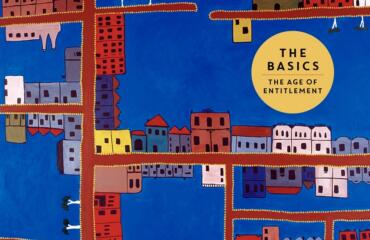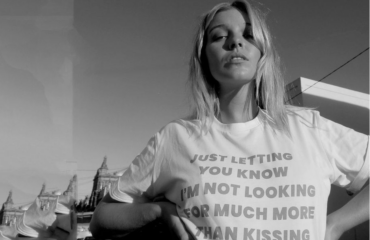
As many as 50 superhero films have been produced in the last decade — and there’s more on the way. At least 30 movies, including Wonder Woman and a third Spider-Man reboot, are slated for release in the next four years.
Actor Hugh Jackman has played Wolverine in a whopping eight films, with another due in 2017. There are dozens of superheroes on the small screen too — from Agents of S.H.I.E.L.D. to Jessica Jones.
“There is no more popular pop culture icon in the past 10 or 15 years than the superhero,” says Dr Liam Burke, a Swinburne University media lecturer and member of the research group Superheroes and Me.
“It’s an unbroken run that bests even the Western,” he says. “You kind of have to ask, why? Why are they so popular?”
Dr Burke is one of the organisers of the Superhero Identities Symposium, a two-day event at the Australian Centre for the Moving Image in Melbourne.
Running Thursday and Friday (December 8 and 9), the symposium will feature a series of panels on the enduring political and cultural significance of superhero stories — from now-ubiquitous comic book films to Australia’s own Cleverman series.
Academics studying superheroes across a range of eras and media platforms have been invited to submit papers on topics such as real-life heroism, film franchising and depictions of race and gender.Running Thursday and Friday (December 8 and 9), the symposium will feature a series of panels on the enduring political and cultural significance of superhero stories — from now-ubiquitous comic book films to Australia’s own Cleverman series.
“It seems to be something in human nature where we desire these stories of somebody whose omnipotent being able to come and solve various problems that we face.” — Prof Angela Ndalianis, University of Melbourne
Guest speakers include Batgirl writer Hope Larson and Paul Dini, creator of DC Comics supervillain Harley Quinn and producer of Batman: the Animated Series. Also on deck is Prof Henry Jenkins, a University of Southern California lecturer who coined the term “aca/fan” to describe academics who study the media cultures they love.
The symposium is one of the major projects to come out of the research group, a collection of Australian academics and comic book fans from the University of Melbourne, Swinburne University and the National University of Singapore, as well as partners at ACMI. The group formed in 2015 with a grant funded by the Australian Research Council.
Melbourne University academic and Batman superfan Angela Ndalianis says Superheroes and Me is examining superheroes as major cultural and media figures. The research project will culminate in a 2018 ACMI exhibition.
Dr Ndalianis says most people are familiar with superheroes as characters in present-day comic books or films. But she says there are prototypical examples throughout human history, such as the Greek demigod Hercules.
“Every culture has had some form of hero who has been beyond human,” she says.
“It seems to be something in human nature where we desire these stories of somebody whose omnipotent being able to come and help and solve various problems that we face.”
Swinburne University’s Dr Burke has been collecting video interviews with fans and celebrities at comic book conventions for a digital archive of superhero fandom set to air at the 2018 exhibition.
Dr Burke describes superheroes as a “great barometer for the age”. He says superheroes — whether in comic books, television or movies — reflect the interests or anxieties of the day even more than traditionally “highbrow” media.
“If you think about an Oscar-winning film or a Pulitzer Prize-winning play, they’re sweated over, people take years of time carefully creating them,” he says, “whereas superhero stories are much more instinctive, they’re much more reactive to what’s going on.”
Dr Burke traces modern-day superhero incarnations to the US in 1938, when two first-generation Jewish-Americans created Superman, who came to America from another planet and draped himself in the colours of the American flag.

Comic book characters from the 1940s were written by first-generation European immigrants who rejected America’s isolationist policy. The first issue of Captain America, which debuted a year before the Japanese attacked Pearl Harbor, showed the patriotic soldier punching Hitler in the jaw.
In the 1960s and 1970s, superheroes such as Spider-Man and the Incredible Hulk developed powers from science experiments gone awry, a reflection of anxieties about the dangers of scientific advancement.
Dr Burke says even the election of Donald Trump — and the rise of anti-immigrant populism around the world — is sure to have an impact on discussions at the symposium. One panel, for example, will discuss national and regional identities as they relate to characters such as Captain America.
“Captain America’s a particularly problematic figure in a way because he stands up for American ideals but at a time when American ideals are questioned — or it’s hard to point to what those might be,” he says. “A character like that becomes increasingly complex.”
Dr Ndalianis says such stories are more than an escape; they have boomed most when people need a hero. It can’t be a coincidence, she says, that much of the superhero film phenomenon developed in the aftermath of September 11.
“It’s almost like we’re hungry for it because of things happening in our society,” she says. “It seems to be this need to see narratives where these super heroes come to save the day.”
► The Superhero Identities Symposium runs December 8 and 9 at ACMI in Melbourne.



